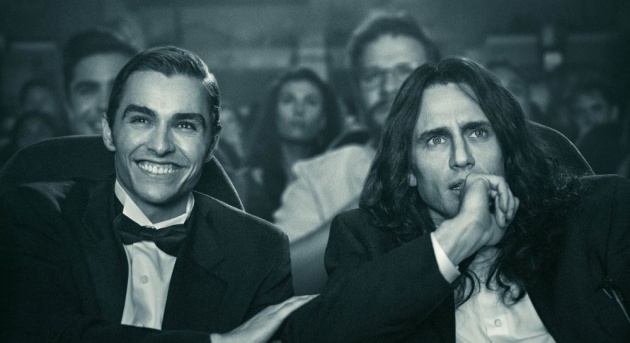
The ambivalence at the heart of “The Disaster Artist” seems to be the film’s raison d’être. And it is this: here’s a guy who’s clearly a clown, a self-important, self-obsessed d-bag with no talent, no sense of propriety, and no self-awareness. At the same time, there’s something of a Cinderella or underdog story going on. The guy who dreamed the impossible, didn’t doubt himself even for a moment, and went on to do his thing, however atrocious/horrendous/mortifying the result. In other words, gave “The Man” the finger, à la “School of Rock.”
I believe, in essence, that this is how we see our divided selves. Tommy Wiseau is a caricature or boogeyman of the worst and best versions of us. It’s the angel and the devil sitting on our shoulders, Gollum and Smeagol, the judging parent figure who puts you down versus the inspiring teacher figure who lifts you up.
And, in the best moments, we get to experience both in this film. We feel good laughing at this idiot - here, we ARE the mean parent, and we take joy in BEING that hateful person, telling someone else they’re worthless, stupid, hopeless. Because why? Tommy Wiseau is CLEARLY these things (right?), so we can laugh at him all we want, because he so clearly deserves it.
At the same time... as the Greg Sestero character seems to be at times, we are also fascinated by someone who is so bold, brave, fearless, and simply does things despite obvious reasons not to. Because, again, we are all afraid, deep down inside, and are secretly in awe of people who can simply DO.
So why do people “love” bad movies? I believe it makes them feel good to laugh at someone else’s failure, it confirms the choices they’ve made in life to be mediocre, to give up their dreams, to have made the “sensible” choice. Because look at this idiot! He thought he could act/write/make movies. Hardy har-har. There’s no quicker shortcut to feeling better about oneself than to point and laugh at another.
And it’s especially true in the film industry itself. Once a film goes into production, it becomes a machine with a life of its own, and the “creatives” (as they’re both admiringly and dismissively called) are often left out of the picture insofar as the nuts and bolts of a production goes. They’re considered something like adorable children who can’t really be left alone to do anything but can light up a room with their energy, creativity and general aura.
It’s that ambivalence again, in other words. You laugh at them and treat them like children, and yet your very job depends on what goes on in their heads, and comes out of their mouths. This is the bonkers multi-billion dollar industry known as the movie business.
So beneath what appears to be a very light-hearted, self-referential comedy is actually a fairly complex mix of ambivalent feelings that we have about ourselves, and that Hollywood has about itself. So, ultimately, the joke seems to be... on us?



